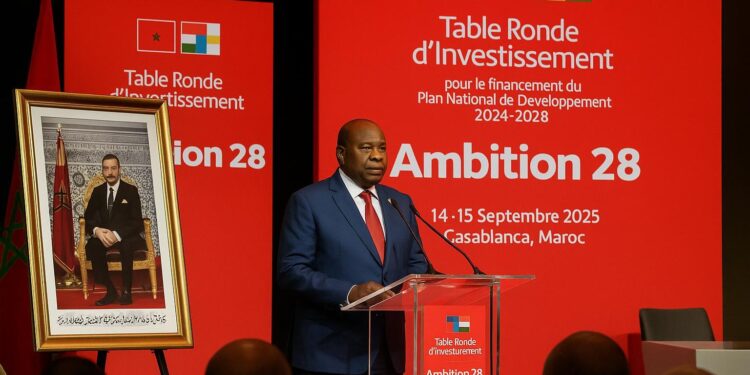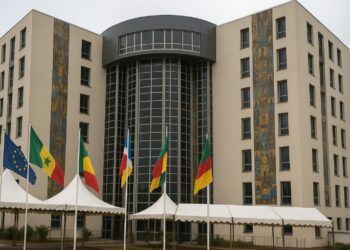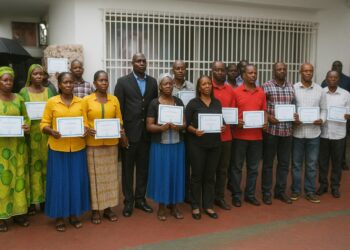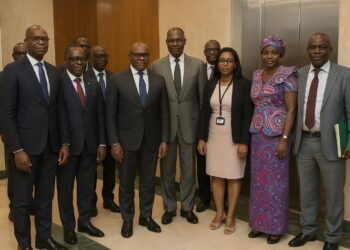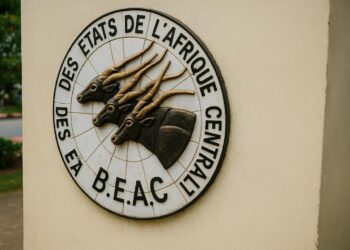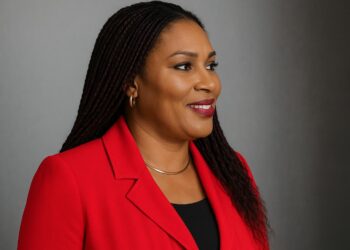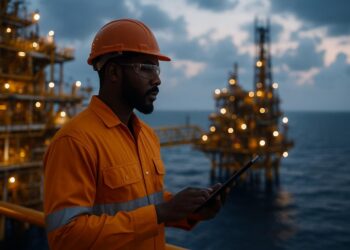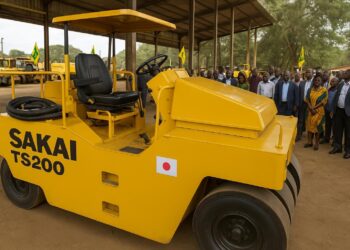CAR unveils $10.7bn plan in Casablanca
The Central African Republic unveiled its National Development Plan 2024-2028 in Casablanca on 14-15 September 2025, seeking 7,000 billion CFA francs, roughly 10.7 billion dollars. President Faustin-Archange Touadéra said Morocco’s commercial capital offered an “Africa-centric yet global” stage for his reform priorities.
The forum gathered multilateral lenders, sovereign funds, commercial banks and industrial groups around sectoral project sheets covering infrastructure, agri-business, digital connectivity and social services. Ministers stressed that the plan is aligned with the African Union’s Agenda 2063 and the CEMAC convergence framework, underlining macro-fiscal discipline.
Morocco’s financial hub draws lenders
Casablanca Finance City, first in Africa in the Global Financial Centers Index, hosts over 220 licensed institutions managing continental portfolios, giving CAR a pre-qualified audience able to structure blended finance and green bonds at scale.
Moroccan officials emphasised South-South cooperation rather than aid dependency. “Every dollar committed here strengthens peace dividends and sustainable growth,” argued Nadia Fettah Alaoui, Morocco’s finance minister, referencing the post-2020 recovery partnership already linking Rabat with fifteen sub-Saharan economies.
Mixed financing toolbox reduces risk
The Central African delegation highlighted three funding pillars: domestic revenue mobilisation, concessional loans and private capital. A proposed multi-donor trust fund would pool climate-resilience grants, while a planned sukuk programme aims to tap Islamic finance, mirroring instruments successfully issued by Côte d’Ivoire.
To reassure investors, Bangui presented an independent monitoring mechanism co-designed with the African Development Bank. Quarterly international dashboards will track budget execution, procurement transparency and social impact indicators. Officials argued that such disclosure, published in French and English, should gradually compress perceived political-risk premia.
Comparative scale in African context
In relative terms, the 10.7-billion-dollar envelope sits between Gabon’s 4.5-billion-dollar Transformation Acceleration Plan and Niger’s 29.6-billion-dollar Renaissance III programme. Senegal’s updated Emerging Senegal Plan, at 41.4 billion dollars, remains the regional heavyweight. These comparators helped donors gauge scale without inflating expectations.
United Nations Conference on Trade and Development data show foreign direct investment inflows to CAR at just 30 million dollars in 2023, against Cameroon’s 680 million and Chad’s 780 million. Positioning the plan as realistic therefore seeks to trigger a credibility effect rather than chase unattainable volumes.
Sector priorities and green energy drive
Sectorally, the blueprint allocates 37 percent to transport corridors linking Bangui to Douala and Pointe-Noire, 24 percent to energy generation and distribution, 19 percent to agri-value chains, and the balance to health, education and governance reforms. These ratios correspond to diagnostics produced by the World Bank and IMF.
Renewable energy received particular attention. Developers from Spain, the United Arab Emirates and South Africa consulted on a 60-megawatt solar-hybrid project near Boali. The government intends to secure guarantees from the African Trade Insurance Agency, replicating risk-sharing models already tested in Zambia.
Strategic value for Morocco and CEMAC
For Morocco, the event strengthens its economic diplomacy. Kingdom-linked entities invested about 2.4 billion dollars across Africa in 2024, says the Office des Changes. Helping CAR deal flow consolidates Casablanca’s role as a bridge between Maghreb liquidity and sub-Saharan opportunity.
Observers note that no binding pledges were signed during the round table; instead, expression-of-interest letters totalled 4.1 billion dollars. The remaining gap will be revisited at a follow-up meeting scheduled in Bangui early 2026, after enactment of an updated investment code.
Reform agenda powers business climate
The proposed code will streamline customs exemptions, accelerate one-stop-shop licensing and introduce arbitration options compliant with the Organisation for the Harmonisation of Business Law in Africa. Officials maintain that these reforms can lift CAR eight places in the World Bank’s Doing Business successor index.
Security and social cohesion considerations
Civil-society representatives welcomed the focus on social spending yet cautioned that security conditions in northern prefectures may delay rollout. Government delegates answered that the United Nations-supported Disarmament, Demobilisation and Reintegration programme is progressing, citing restored traffic on the Bangui-Birao axis.
Debt metrics under investor scrutiny
Rating agencies will scrutinise debt sustainability. CAR’s public-debt-to-GDP ratio stood at 47 percent in 2024, below the CEMAC threshold of 70 percent. The Finance Ministry plans to cap new borrowing at concessional terms averaging two percent interest and twenty-year maturity to preserve this buffer.
Beyond numeric targets, the Casablanca gathering signalled a narrative shift. By launching a plan in Africa’s top financial hub rather than in Paris or Washington, Bangui framed its future within continental networks. The success of that choice will ultimately depend on disciplined delivery back home.
Technical aid to secure execution
Multilateral partners confirmed technical assistance. The IMF will reinforce treasury single-account operations, while the IFC pledged advisory support for a PPP pipeline. Officials argued that such capacity-building is as critical as capital in turning pledges into projects.

































